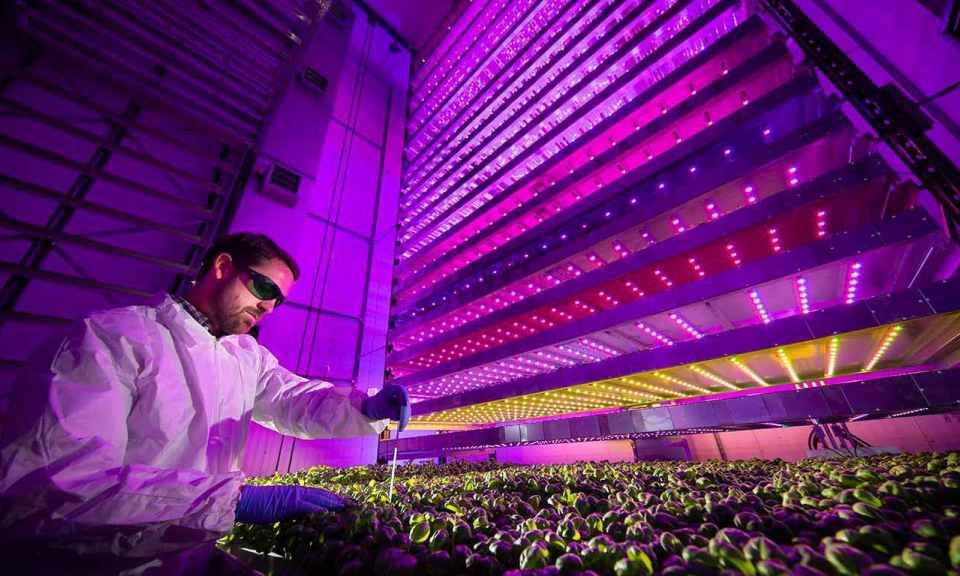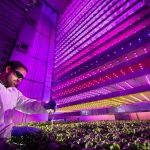Dutch AgriTech startup Future Crops raises new funding led by Tencent for its indoor vertical farm to sustain growing population with high-yield crops

In 2021, the total world population was estimated to be around 7.88 billion people. With billions of people to feed, the demand for food is also rising. Additionally, there are also challenges of land and water to contend with. The world needs to manage the water consumption needed to grow food. Additionally, as people become more conscious about eating healthy, more and more people now want to grow their own food in a more sustainable way.
However, only 28% of Americans say they have easy access to healthy foods. Another 11 percent report it’s just too difficult to find healthy foods. At the same time, Locally grown food is important to nearly half of consumers, and the pressure on retailers to source more of it shows no signs of slowing. It’s for this reason that AgriTech startups are now using new technology like AI and precision agriculture to grow foods using indoor eco-farms.
Enter Future Crops, an Israeli-Dutch venture that is reshaping agriculture using vertical farm systems to sustain growing populations with high-yield crops. The Westland, Netherlands-based Future Crops has established a fully automated indoor vertical farm in Westland, Netherlands, known as the “greenhouse hub” of Europe.
Today, Future Crops announces a new investment round led by Tencent to accelerate growth and shape the future of agriculture and our food system, making it more safe, resilient, and efficient. The total amount of the fund was not disclosed. Future Crops had already raised over $30 million in seed funding from a private equity arm run by the Lerman Family, leaders in the American steel industry to finance the construction of their state-of-the-art facility and to build their team of experts. This is the first time Future Crops has sought investment beyond its initial round of funding.
“We are tremendously excited about this investment,” says Gary Grinspan, CEO and Co-Founder of Future Crops. “Tencent’s investment reflects the company’s focus on sustainable innovations and support for technologies, like vertical farming, which can create clean, locally grown sustainable food while helping to mitigate the negative impacts of climate change. We believe our soil-substrate-based platform is closer to nature and produces fresh, longer-lasting, higher-quality produce at improved yields, as plants grow best in soil.”
Founded in 2016, Future Crops has developed advanced vertical farming from cutting-edge technology that uses a unique soil-like substrate to better reproduce the natural environment. The high-tech farm grows fresh, clean, ultra-sustainable, high-quality crops at competitive price points. Researchers from Israel’s Agricultural Research Organization (ARO) were an integral part of the team that developed Future Crops’ cutting-edge technology.
“Tencent supports companies creating solutions to the world’s most critical challenges, including technologies that can feed more people using fewer resources,” said Ling Ge, Chief European Representative, Tencent. “Investments in sustainable agriculture technologies, such as vertical farm systems, align with our mission to apply technology for good.”
Future Crops’ facility is equipped with high-precision agricultural technology and creates optimal climatic conditions to suit each crop. It markets fresh herbs grown and processed in a multistory indoor vertical farming system. The crops are grown in a soil-based substrate developed by the company to be as close as possible to nature. The platform can grow a comprehensive range of herbs and leafy greens all year long, without pesticides or biological substances, and in climate-protected conditions. The startup also maintains a strategic partnership with Israel’s Agricultural Research Organization (ARO) and closely collaborates with Wageningen University – both among the leading global research centers in agriculture.
“The timing of this investment round is perfect for us as Future Crops has recently scaled up to mass production capacity,” adds Grinspan. “We’re already supplying fresh high-quality herbs to leading European retailers, both under private label and our own brand. Currently, we market all our produce, so this investment will allow us to expand our capacities to meet demand and continue to increase our R&D capabilities and develop proprietary technology.”

